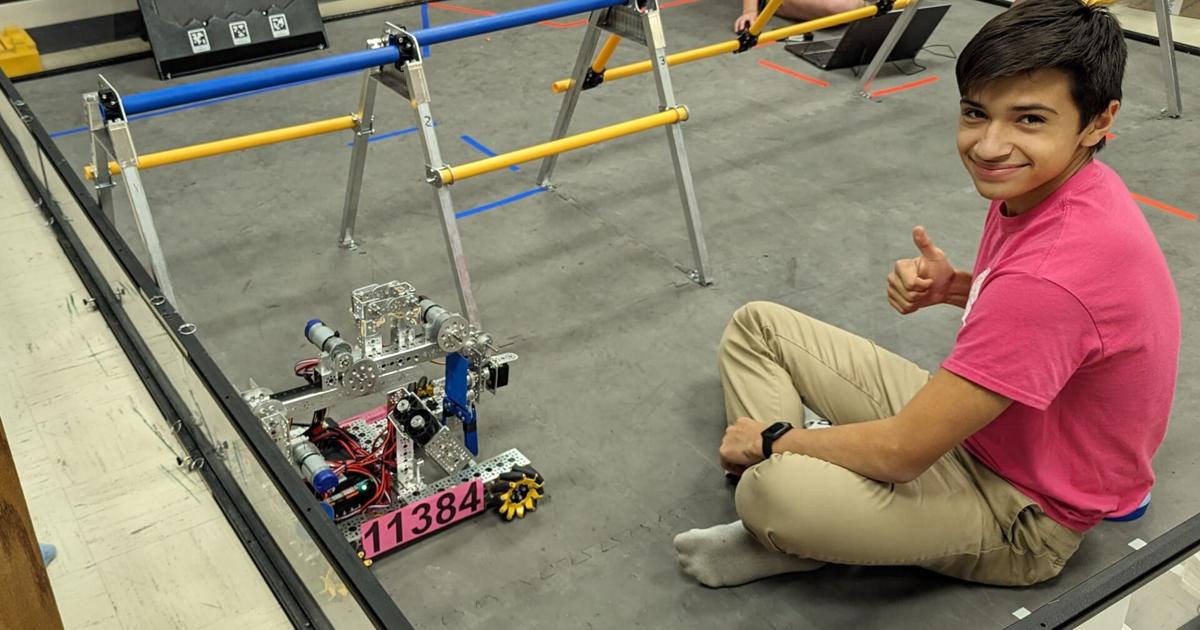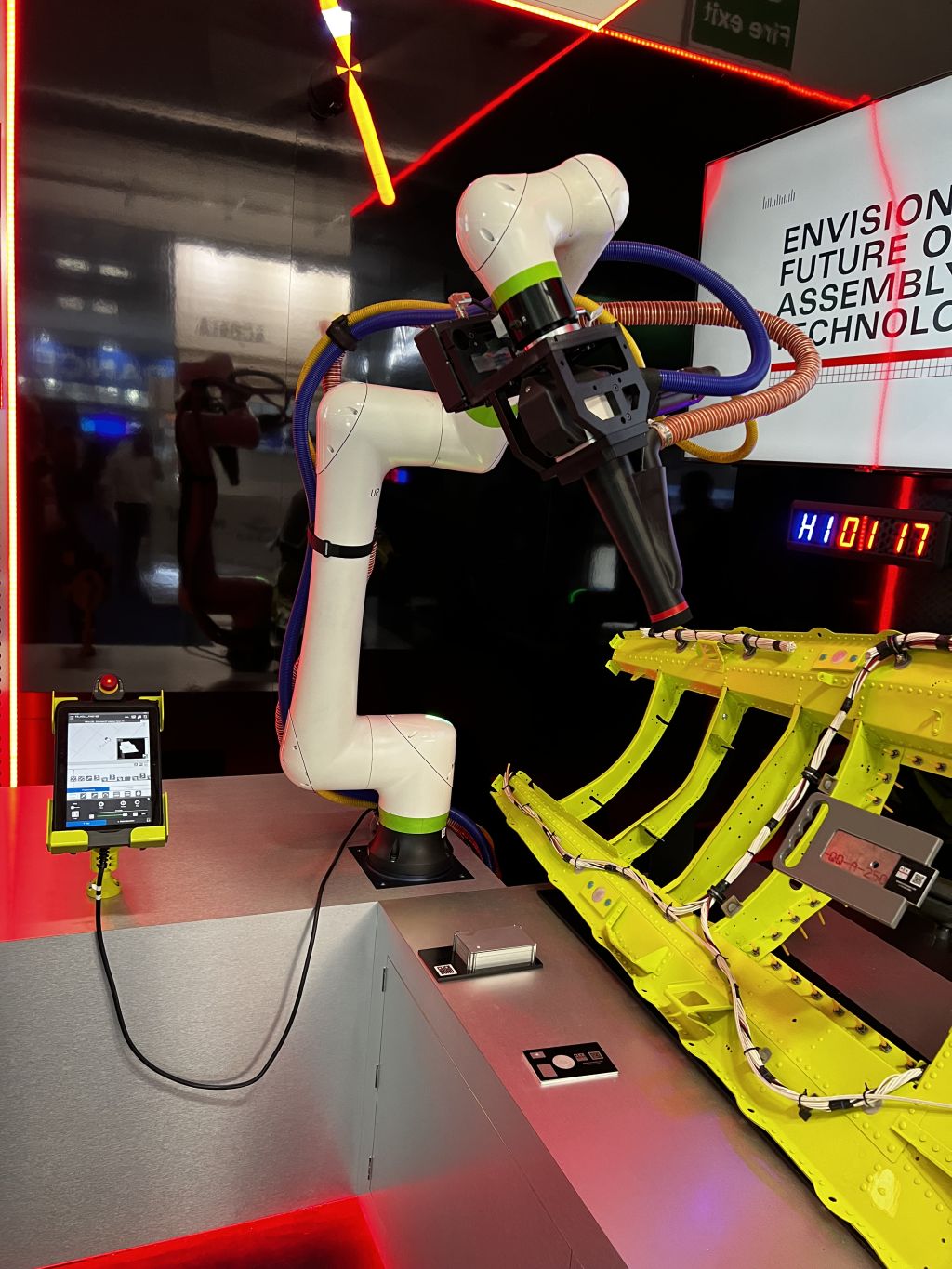The humanoid robot waved at the crowd, folded its arms toward its chest, and bowed in greeting.
Then it stepped sideways to show some motor skills.
It’s a prototype of Agility Robotics’ bipedal robot, Digit, which is meant to work in warehouses alongside humans to handle the more tedious and physically taxing duties of handling and moving products, according to Bambi Brewer, head of customer experience for Agility.
Digit interacted with attendees at Pittsburgh Robotics Network’s Discovery Day 2023 at the David L. Lawrence Convention Center in Downtown Pittsburgh on Thursday. The event drew about 4,000 from throughout the region, largely school groups comprised of students interested in science and technology. About 130 vendors showcased their latest tech, from autonomous trucks to underwater devices and smaller assistive items to help those with limited motor skills.
A newer version of Agility’s Digit stands 5 feet, 6 inches tall and can carry a payload of about 35 pounds, according to the Oregon-based company that employs 40 people in Lawrenceville.
Notably, the newer version also has a head with eyes that light up.
Brewer said that design element — having a face — is a key component.
“People feel more comfortable with it, and it’s a very good way to give people cues about what the robot is going to do,” Brewer said. “For instance, if the robot is going to turn, it shifts its eyes — people are used to looking at faces to receive cues about what someone is going to do.
“If you’re working in a facility with someone, you want to be able read your co-workers. Is it safe? Does it see me? What can I expect? No one wants an unpredictable co-worker, robot or otherwise,” said Brewer.
Attendance nearly doubled since last year, according to Jennifer Apicella, executive director of the Lawrenceville-based Pittsburgh Robotics Network.
“We encouraged educators to bring groups of high school students, especially, so that people could start charting their courses,” Apicella said. “Because many of these opportunities and jobs just weren’t available five or 10 years ago.”
Apicella noted that there might be uncertainty or hesitancy around new occupations or new technology, but this event “seeks to demystify a lot of that so that the fear can be removed.”
“These innovations are absolutely not taking jobs. They are transforming workplaces,” Apicella said. “Our hope is that as people come through, they can see firsthand that these technologies are here and this is not science fiction, this is not entertainment. These are pragmatic solutions that are solving real world problems.”
Philadelphia Inglis Assistive Technology Solutions is a 150-year-old nonprofit that expanded into Bellevue, opening its doors in October at the Suburban General Hospital. Inglis designs and provides instruments and devices for those with disabilities and for older individuals who want to remain independent.
Leah Marmo-Rainey, director of Inglis Impact Accelerator, demonstrated devices to help hold utensils steady, grip house keys easily and retrieve medication from blister packets.
“We can go into someone’s home and assess what their needs are and 3-D print things that can make their lives easier,” Marmo Rainey said. “Bathing, cooking for themselves, shopping are all areas we’re really interested in helping people to live better.”
Stephanie Ritenbaugh is a Tribune-Review staff writer. You can contact Stephanie at [email protected].











